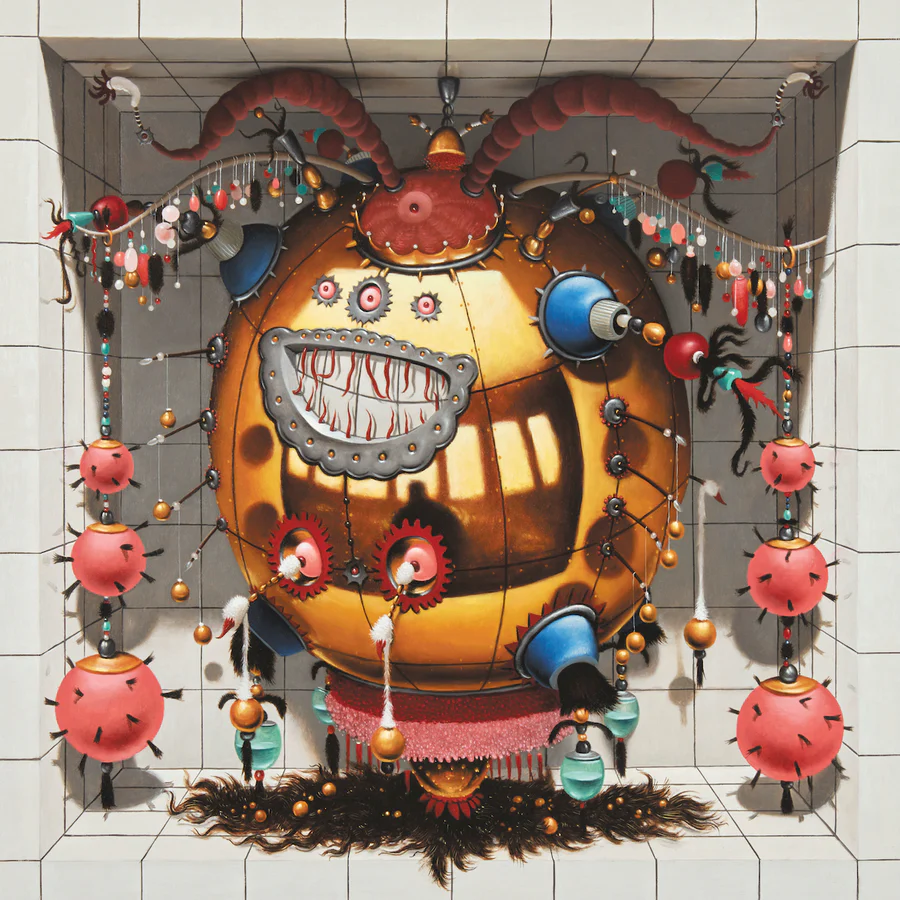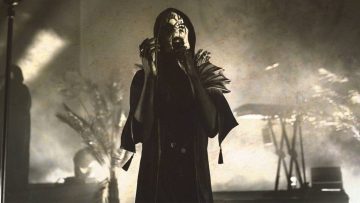★★★☆☆
Among two releases to kickstart the year, both mercurial reinventor John Cale and the Godfather of Punk himself Iggy Pop had bones to pick with our end-of-days world.
No doubt dystopia is a theme that’s been interrogated from every which way for decades, from Bowie’s Diamond Dogs to Weyes Blood’s recent And In The Darkness, Hearts Aglow via Radiohead’s Kid A, and every moody assortment in-between. It is, after all, a concern as old as time. But the turbulence of recent years, particularly during a seismic event that no one wants to talk about anymore, seems to have dialled up the concern.
The Hartnoll brothers, Phil and Paul, known collectively as Orbital, have been releasing bangers since the ‘90s, starting with their dreamy debut ‘Chime’ (which, among electronic folklore, allegedly cost less than a quid to produce). And now they’re even turning their dab hands to worldly concerns on their tenth album, Optical Delusion.

I said we wouldn’t mention it, but that previously unsayable is hard to escape on the album opener, not least because its full title is ‘Ringa Ringa (The Old Pandemic Folk Song)’. Although disputed by historians, the links between the ‘Ring a Ring o’ Roses’ nursery rhyme, which the track utilises, and The Great Plague, is a direct, eerie reference to the disease we’ve just faced.
Having it sung by ensemble The Mediæval Bæbes (whose third album Undrentide was incidentally produced by Cale) provides a haunting, esoteric start to the album – although that familiar whirring propulsion that features on most of Orbital’s work persists.
In fact, one thing that makes Orbital undoubted legends of their field – in the same acid house breath as The Chemical Brothers and Underworld – is that they’ve managed to carve a unique sound. You can hear a track and, more times than not, guess correctly that it’s them. From ‘Chime’ through to 1993’s ‘Halcyon and on and on’ and up to their latest record, 2018’s Monster’s Exist, there’s a recognisable buzzy patter that beckons at you like sirens, alluring you to the dancefloor.
Ten records deep, and that distinct sound doesn’t let up on Optical Delusion – in fact, it still comes across as remarkably fresh. What is different is the number of features compared to usual, with eight of Optical Delusion’s ten tracks having a guest vocalist. (Monster’s Exist, for instance, only had one feature: Professor Brian Cox).
These are varyingly applied, though. ‘Day One’ – probably the most classic Orbital tune, and the best, on the album – uses Dina Ipavic’s wailing more as a high-pitched synthesiser. This is in sharp contrast to ‘Home’, with the poetic sprechgesang (or speech-song) of Dublin-based Londoner Anna B Savage crisply enunciating every syllable (“It’s too hot today / This mega-city chugs away / It’s stifling heat / Wobbles the concrete”).
‘Dirty Rat’, meanwhile, the album’s political attack dog, isn’t so much a guest feature as a takeover, with Sleaford Mods’ Jason Williamson denouncing the voters who put our rulers in power, those “blaming everyone in the hospitals / Blaming everyone at the bottom of the English Channel / Blaming everyone who doesn’t look like a fried animal.”
Where the album’s let down is its slightly forgettable middle, with ‘Frequency’ not really adding anything new – an instance where having a distinctive sound can err into being predictable. ‘The New Abnormal’, another pandemic reference, is a bit more unusual, oscillating in and out and striking into breakbeat midway through. But again, it’s nothing out of the ordinary, nothing too… abnormal.
Meanwhile, the penultimate track ‘What A Surprise’ is spliced so finely between jabbing synths and The Little Pest’s vocals calling out “I have been radicalised” in the whispering manner of Eckhart Tolle that the whole track is too sinister for its own good. Album closer ‘Moon Princess’, however, featuring Japanese singer and producer Coppé, shows how the creepy can be compelling once more.

Photo: Kenny McCraken
It’s ‘Requiem For The Pre Apocalypse’ that provides yet another standout, though. It marries both the intelligent ambience Orbital have been at the forefront of with a gently euphoric drum and bass (you could almost imagine PinkPantheress singing over it). The result, true to its title, is a summary of the album as a whole: something you can dance to as the world around us perishes.
Indeed, 2023 has already offered us albums that examine our dystopic world. It might be an odd time in which to live, but at least it can sound good.





